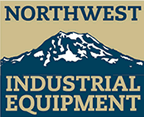Incorporating Used Petroleum Recycling in Shop Design Heats Up Profits
Building a new shop or remodeling a facility takes a lot of planning, coordinating and money. The process can take anywhere from a couple of months to multiple years. During that time, there are many important decisions that need to be made in terms of the actual site, the building and the equipment that is installed and used.
Many times there is so much to consider that important systems, such as the heating systems, are overlooked. Some people are not aware of cost-effective options when it comes to heating a new or existing facility. Shops with a continuous source of used motor oil, transmission fluid, hydraulic fluid and other petroleum-based products can significantly cut expenses with an easy-to-use used oil fired boiler and unit heating system that recycles their used oil on site into free heat and hot water. The oil is converted through the boiler into heat to heat the facility and even heat hot water used in the facility.
Slippery Issue
Used oil is often seen as a liability because companies are required to dispose of the waste oil safely. Recycling used oil on site with a used oil fired boiler and unit heater system eliminates all used oil disposal and hauling costs. A facility owner has a "cradle-to-grave" liability for the oil, meaning that the company or individual who creates the used oil is liable for the oil until it is properly disposed of. Installing a used oil boiler or heater on site eliminates the possibility of being liable for spills or vandalism of the oil after it leaves the property because no oil is being hauled away.
The Environmental Protection Agency regulates the process by which company's dispose of the used oil stating that, "Used oil may be burned for energy recovery in used-oil-fired space heaters provided that the heater burns only used-oil changers or boilers." Used-oil boilers, heaters and furnaces meet EPA requirements for on-site recycling of used oils. In addition, the system needs to meet UL and/or ASME specifications for unit heaters and boilers. It is important to check with local jurisdictions because they may have different regulations on the installation of the equipment.
Making a Plan
Installing a used oil fired heater in a new building or during remodeling is a simple task and can be accomplished with minimum disruption to the ongoing work activity of the facility. Most unit heaters are installed attached to the roof support system. Existing used oil tanks can be used in the new system.
Installing a used oil fired boiler or commercial water heater takes additional planning and preparation. A reputable mechanical contractor should be consulted for the design, construction and installation of the system. For new construction, consider a radiant floor heating system using radiant floor PEX tubing indoors and frost pads outdoors, as well as a hydronic hot water unit heating system. Some systems have both PEX tubing and unit heaters, depending on the building design. A used oil fired boiler hot water system is very versatile and, once installed, can provide the facility owner with many options for heating the shop areas, offices, bathrooms and parts areas. In addition, a snow-and ice-melt system can be designed into facilities that are located in cold and snowy areas. Some boiler manufacturers have built-in hot water coils that can provide hot or warm water for car washes. Using warm water can reduce the car wash chemical and soap requirements by at least 25 percent. This type of system is not restricted to a new facility, but can also be installed in existing facilities.
Better Flow
Most companies see a return on their investment within 12 to 18 months for a heater and two to three years on average for a boiler, depending on the cost of the system and installation. After that, the heat and hot water is virtually free. Many customers recoup the cost of their systems within the first year after installation. Not only does the dealership save money with every gallon that it burns by pumping it back into the facility, but it also saves money on oil disposal fees.
Facility owners should perform a cost benefit analysis test to evaluate the cost associated with purchasing the current fuel and maintenance for the current system compared to the cost of the boiler and unit heater. In addition, a company should evaluate how much it would save every year on heating bills.
Many facilities that perform oil changes collect enough used oil to fulfill all of their heating needs for the shop. During the warmer months, most businesses do not pay any heating bills because all the heat they need is supplied from their used oil. During the winter months, most facilities pay only a very small amount. Shops can experience ongoing savings of thousands of dollars per year.
"We use to pay about $1,200 per month on our natural gas bill during the colder months, but since we have installed a boiler our gas bills have been eliminated with very little maintenance," says Scott Rainford, general manager of Rainford Lube & Oil in Yakima, Washington, which installed a used oil boiler in December 1998. "We use the boiler to create heat for our car wash water, tunnel and frost pads, which makes it safe for people to get out of their cars."
The benefits of installing the system are lifelong. It saves facilities money on heating, disposal of the used oil, the burden of finding a company to haul away the oil, and the risk of damage to the environment by taking away the chance of a hazardous-materials spill.
Contact us today to calculate your potential return on investment with a used oil heating specialist to discover whether a used oil boiler and unit heater would save you company several thousand dollars per year or more.
